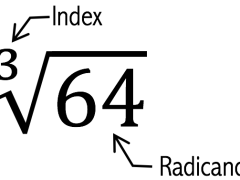election [iˈlekʃən] n. 选举
【派】electionary 选举的
【扩】vote 选举
【搭】hold an election 举行选举
* * *
A: When can I know the election results?
B: At the end of the meeting.
A:我什么时候能知道选举结果?
B:在会议尾声的时候。
* * *
former [ˈfɔːmə] adj. 从前的
defeat [diˈfiːt] v. 打败
【扩】win 战胜 beat 打败
【搭】be defeated by 被……打败
* * *
A: Los Angeles Lakers defeated Boston Celtics this morning.
B: Yes, Kobe won the MVP award.
A:今天上午洛杉矶湖人队打败了凯尔特人队。
B:是的,科比得到了最有价值球员称号。
* * *
fanatical [fəˈnætikəl] adj. 狂热的
opponent [əˈpəunənt] n. 反对者,对手
* * *
A: He is a competitive opponent.
B: Come on. I believe you will win.
A:他是一个有竞争力的对手。
B:加油,我相信你会赢的。
* * *
radical [ˈrædikəl] adj. 激进的
progressive [prəˈɡresiv] adj. 进步的
【派】progressively 渐进地
【扩】progressional 进步的,前进的 ascensive 进步的,上进的
【搭】progressive forces 进步力量
* * *
A: He was a progressive thinker.
B: Why do you say so?
A:他是个进步的思想家。
B:你为什么这么说?
* * *
ex-[eks] prefix (前缀,用于名词前)前……
suspicious [səˈspiʃəs] adj. 怀疑的
noun [抽象名词]选举;当选;选举权;上帝的选拔 - An election is a process in which people vote to choose a person or group of people to hold an official position.
election campaign 选举活动:
个人或其政党组织的有组织的努力,以说服选民在选举中投票支持他们。
- The candidate launched an election campaign to gain support from the voters.候选人发起了一场选举活动,以争取选民的支持。
election debate 竞选辩论
- “We can alter the national debate with one election, ” she says. 她的竞争对手胡赫尔将老年保健医疗制度作为她竞选的主要方案,她说:“我们可以通过一次选举改变全国民众争论。”
adjective [原级]旧时的;以前的,前…;(两者中)前者的 - When two people, things, or groups have just been mentioned, you can refer to the first of them as the former.
noun [具体名词]模子,模型;形成某事的人(或事);线圈架,绕线模;(机翼、机身的)翼肋 - a person or thing that forms or shapes
the former Prime Minister 前首相
the former president 前总统
the former... the latter...
verb [vt. 及物动词]击败,战胜;困惑,难住;使失败,阻挠;反对(动议或提议) - His guerrillas defeated the colonial army in 1954.
noun [具体名词]失败,战败;战胜,击败 - The most important thing is not to admit defeat until you really have to.
adjective [原级]狂热的 - He is a fanatical fan of Mozart.
noun [抽象名词]对手,竞争者;反对者,阻止者 - Norris twice knocked down his opponent in the early rounds of the fight.
adjective [原级]对立的,敌对的 - In debate he was a formidable opponent.
adjective [原级]根本的,彻底的;激进的,极端的;全新的,不同凡响的;(增减)急剧的,大幅度的;(人,物)原本的,与生俱来的;<美,非正式>顶呱呱的;(外科,医疗)根治的;<英,史>(19世纪)自由党激进派的;(数)根式的,根号的;词根的;(植)根生的 - • The country needs a period of calm without more surges of radical change.
noun [具体名词]激进分子; 游离基,自由基;词根;(汉字)偏旁,部首;(数)根式;根号 - Vanessa and I had been student radicals together at Berkeley from 1965 to 1967.
adjective [原级]进步的,先进的;逐步发生的,逐步发展的;向前移动的;(音乐)现代的,新潮的;(税制,税种)累进的;(动词)进行式的;(纸牌游戏,舞蹈)搭档轮换的 - One prominent symptom of the disease is progressive loss of memory.
noun [具体名词]进步分子,改革派人士;进行时(或体);(印刷)分色打样 - The Republicans were deeply split between progressives and conservatives.
Radical Progressive Party 激进党
a progressive policy 进步的政策
noun [具体名词]前缀;前置代号(置于前面的单词或字母、数字); <旧>(人名前的)称谓 - To telephone from the U.S. use the prefix 011 33 before the numbers given here.
verb [vt. 及物动词]在…前面加(字母或数字);加…作为前言(开场白) - Car insurance policies have the prefix MC (for motor car).
adjective [原级]感觉可疑的,怀疑的;不信任的,持怀疑态度的;令人怀疑的,引起怀疑的 - If you are suspicious of someone or something, you believe that they are probably involved in a crime or some dishonest activity.
① adj. 猜疑的,认为可疑的,对……起疑心的,多疑的
- Customs officers are suspicious of nervous-looking travelers.
- Don’t be so suspicious. Everything’s all right.
② adj. 可疑的,令人起疑的
- You get a lot of suspicious-looking people in this bar.
- The car crash looks suspicious.
suspicious behavior 可疑行为:
指某人的行为举止让人觉得不寻常或不正常,可能涉及到不道德或非法的活动。
- · The security guard noticed the man's suspicious behavior and decided to keep an eye on him.保安注意到那个男人的可疑行为,决定留意他。
be suspicious of ...对……表示怀疑
对某人或某事持怀疑态度,不相信其真实性或可靠性。
- Don't always be suspicious of us! 不要老是对我们疑神疑鬼的!
- He was suspicious of her motives.








